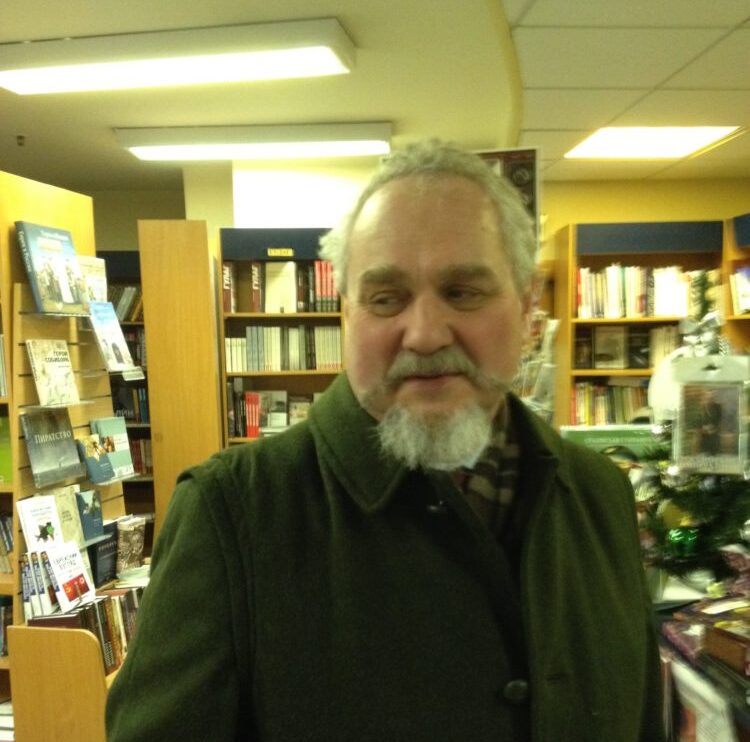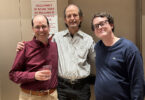Andrei Borisovich Zubov, holds a doctorate in history, political science and religion and is an author of many monographs as well as being an expert with a strong civic mission. He is one of the co-authors of the ‘The Basis of the Social Concept’ presented at the Bishops’ Council of the Russian Orthodox Church in 2000 which paved the way for the ROCOR to begin reconciliation negotiations with the ROC. In 2006, Professor Zubov addressed the Holy Trinity Seminary in Jordanville and expressed his hope that the establishment of canonical unity with ROCOR would be of benefit both to the Church and Russia as a whole. The following interview explores how far this hope was fulfilled.
Andrei Borisovich, many thanks for agreeing to talk to us. So, here we are – the ROCOR and the Moscow Patriarchate are united, what hopes did you have and how many of them were realized?
You must understand that the main thing is that we are together. Any unity is better than being divided. The fact that our Church was broken up into various parts is sad, both from the mystical point and on a human, practical level. Christ’s vesture is torn up – that can only be a bad thing. Besides, it’s in our human nature to want to bring together fragmented parts that feature in our daily lives, not just be united in a exalted and mystical sense. The feature that was important to us … well, at the time, I believed that the ROCOR preserved – and had even made it her mission to preserve – that human and cultural aspect that was largely lost to the Russian Church here, first because of the Bolshevik terror and then through serving the state in a way that greatly contributed to Church’s moral undoing. I believed then the ROCOR could be a small – it’s quite a small church structure– so a small, but powerful catalyst for rejuvenation of the Russian Church . Unfortunately, this hasn’t happened yet and I was disappointed on that score. When I was still part of the Church establishment, I was able to observe the sessions of the Inter-Conciliar meetings for myself and gradually realized that the ROCOR has adopted altogether different position. It tends to remain either silent or generally supportive of the Moscow Church leadership and is rewarded with Moscow’s lack of involvement in its internal affairs. The ROCOR is able to appoint to its own hierarchs and administer its economic resources as it sees fit. So, all in all, it has both preserved its own autonomy and kept out of Moscow’s business.
Do you think it could have happened differently? Could there have been any Moscow Patriarchate involvement in ROCOR’s affairs in principle?
In theory, anything is possible. But I see that they [ROCOR] have come this far and no further. This is by means the worst point to stop at, but neither is that the best and most hopeful for the future. On the other hand, I believe that most things in the Church are done slowly and those that are done in haste are usually done badly. I think this process is set to continue; it will be inconspicuous and quiet but the effect will be felt…
What result would you like to see in the end? What contribution, in your opinion, can the ROCOR make to Russia?
I would like to see… and yes, unfortunately, there is another rather negative tendency in the Church Abroad these days. Some of the ROCOR clergy, particularly those who make frequent trips to Russia become rather fond of the MP’s churchmanship and begin to imitate it. The result is that the easy, friendly and uncomplicated relations that used to characterize ROCOR (the Paris Exarchate too, by the way) has mostly – well perhaps not mostly, but in some instances – disappeared.
You think so?
I think so, yes. Surprisingly, it is still preserved in the autocephalous American Church (OCA), which has remained independent. But of course, it’s liked less and less here, unfortunately. Many bishops call people like Fr Alexander Schmemann heretical. And that’s terrible, of course.
So would you like to see more cooperation?
I have always felt that the Russian Diaspora – not just the Church, but the whole of that part of Russia which had found itself in exile and their descendants – and the Russia which had remained at home should work together in building up our society. So far, I see no evidence of this. On the contrary, and to my great regret, I often observe the opposite. For example, many of ROCOR’s good priests and bishops have become rather taken in by the political claims in the Church – things like “Crimea is ours” and the Ukrainian question. On the other hand, I think many of them, being both intelligent and honest people, are beginning to see the whole thing for what it was, that they weren’t seeing things clearly. That’s what I would like to talk about.
Andrei Borisovich, thank you very much.











